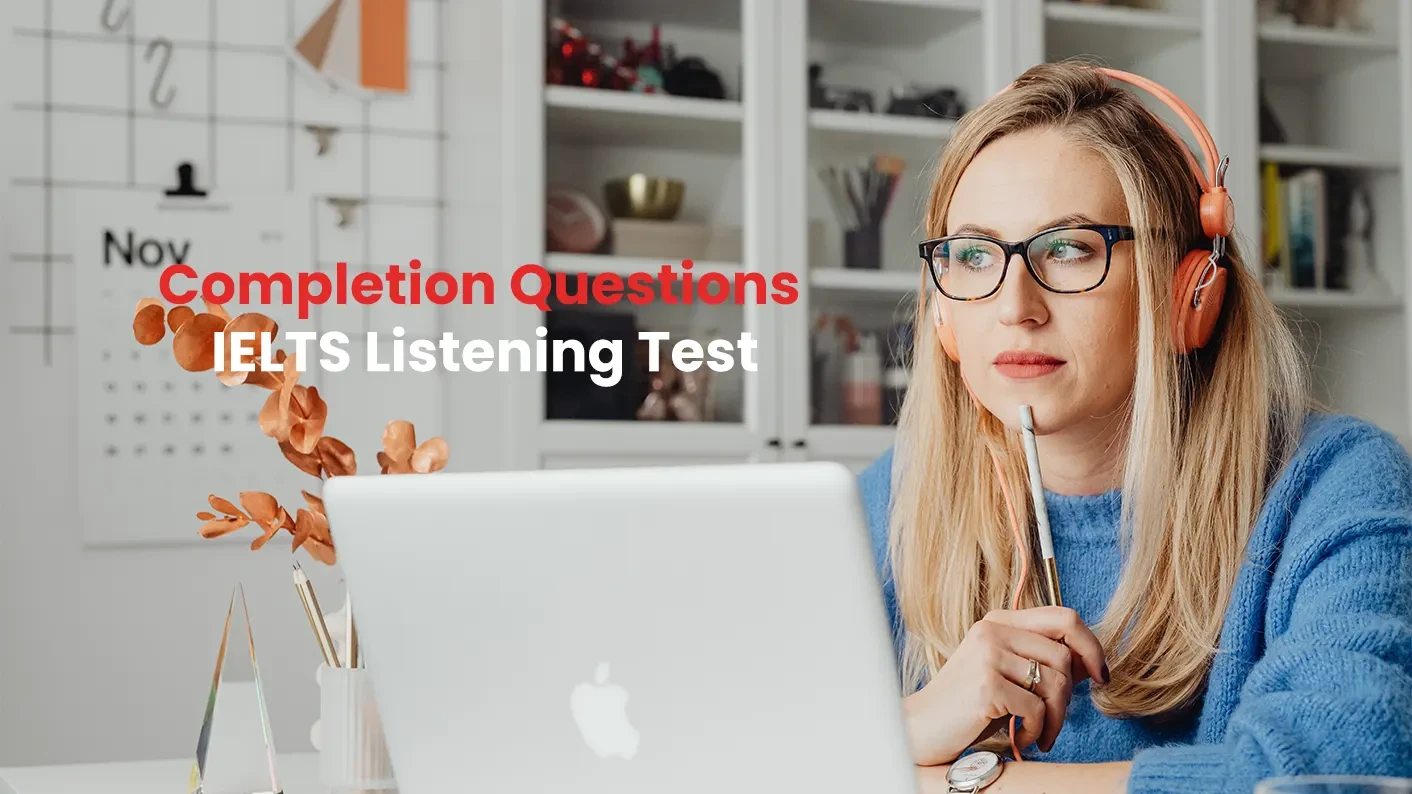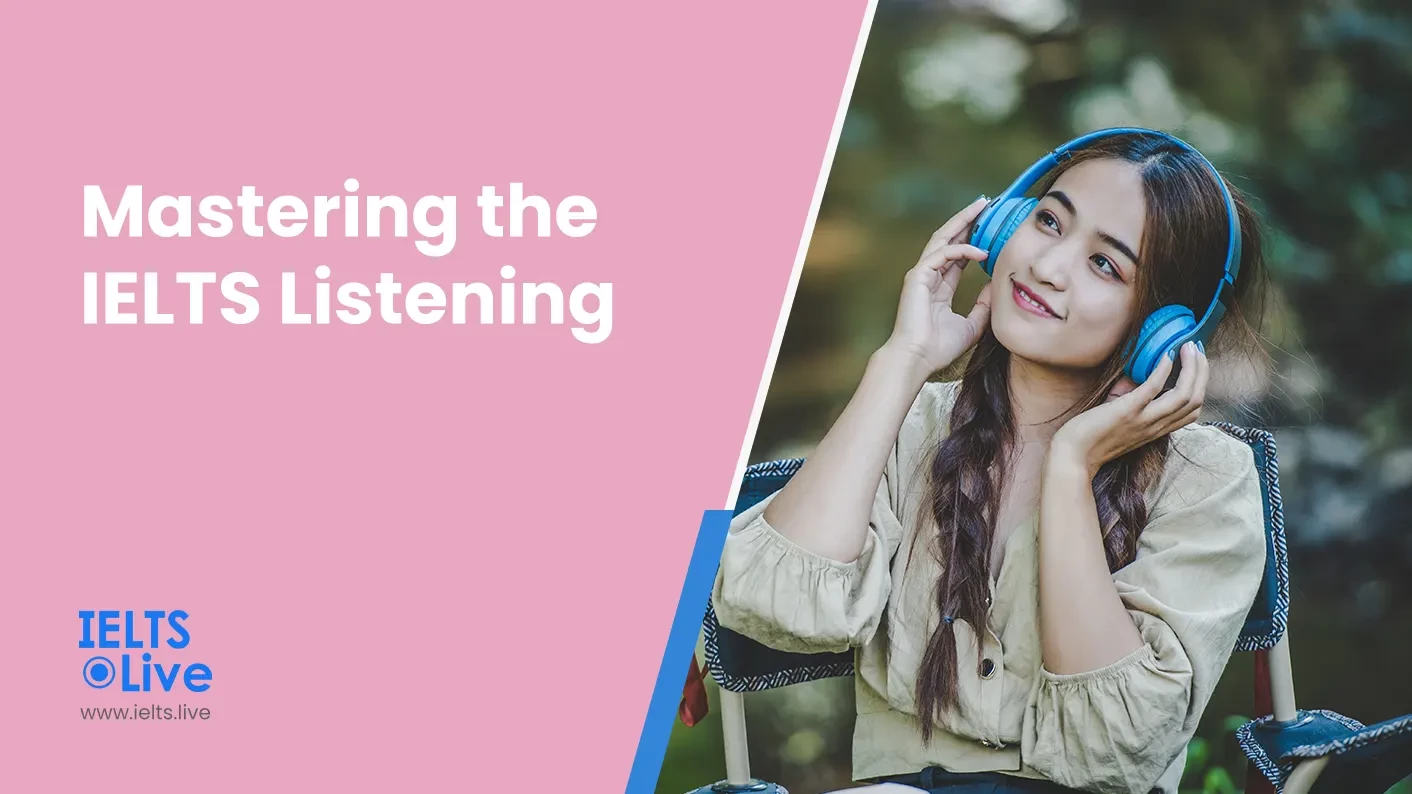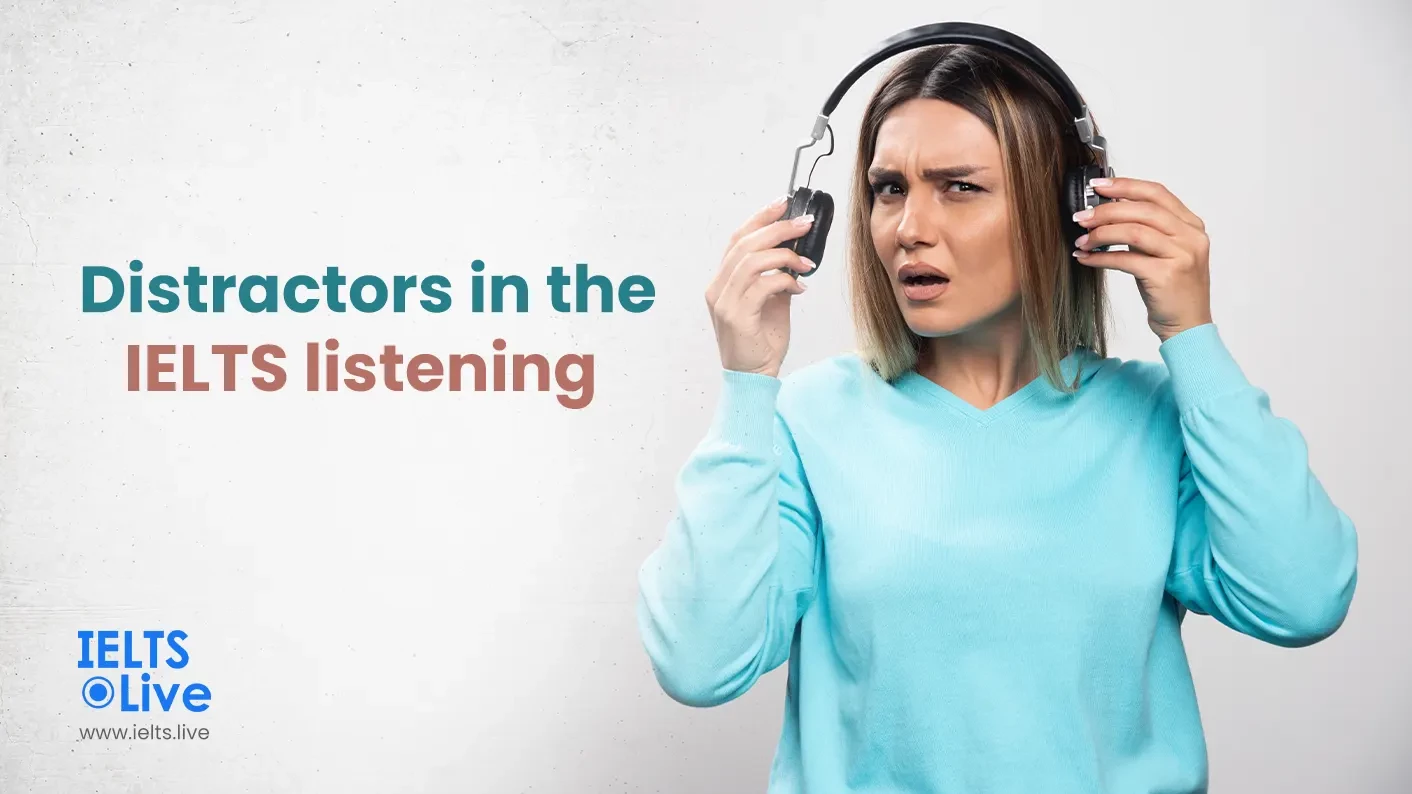
Struggling with the IELTS Listening Test as a non-native speaker? You're not alone! As a non-native speaker myself, I understand that the IELTS Listening test can be a daunting experience for us. However, with adequate preparation, you can improve your chances of success on the test. In this blog post, I will share some expert tips and strategies to help you prepare for the IELTS Listening test as a non-native speaker. With these tips and tricks, you'll be on your way to acing the listening portion of the test in no time. Before getting into that let’s get to know a bit more about the IELTS listening test and the question types.
Here’s an example of the IELTS listening test question. You’ll hear an audio and such a set of questions will be given to you.
The following is a list of the different types of questions in the IELTS listening test:
Multiple-Choice Questions
You will hear a recording and select the best answer from a list of options for this type of question. There are usually three or four options to choose from, with only one correct answer. It is important that you remain attentive throughout the MCQ section, as it may be a little tough to catch the correct information.
Form Completion Questions
You will listen to a recording and then fill out a form with the missing information in the form completion questions. The form may contain blanks for names, addresses, dates, and other information.
Matching Questions
In matching questions, you will listen to a recording and match items from two lists. The items could be words, phrases, or pictures, and you must correctly match them based on the information in the recording.
Sentence Completion Questions
You will listen to a recording and then complete a sentence with the missing word or phrase in sentence completion questions. The sentence may be incomplete, and you must listen carefully to determine what words are missing.
Short Answer Questions
Short-answer questions require listening to a recording before responding to a question with a short answer. The answer could be a single word or a few words, and you'll need to pay close attention to understand what information is needed.
Labeling Diagrams and Maps
You will listen to a recording and label a diagram or map with the correct information in the diagram and map labeling questions. Building, street, landmark, or other feature labels may be included in the diagram or map.
Questions on Summary Completion
You will be asked to listen to a recording and fill in any blanks in the summary with the appropriate words or phrases. You must pay great attention to comprehend what information is required in the summary, which may be presented as a paragraph or a list
Now let's look at what strategies to follow to tackle all these question types:
1. Familiarize Yourself with the Test Format
One of the first things you should do when preparing for the IELTS Listening test is to familiarize yourself with the test format. This will help you understand the different question types, the length of the test, and the amount of time you have to complete each section. Understanding the test format will help you manage your time effectively and answer the questions more confidently.
2. Practice Listening to Different English Accents
The IELTS Listening test includes different English accents, such as British, American, Australian, and New Zealand accents. As a non-native speaker, you may find it challenging to understand different accents. To overcome this challenge, practice listening to different English accents. You can do this by watching TV shows or movies in English, listening to English podcasts or audiobooks, or even talking to native English speakers.
3. Improve Your Active Vocabulary
To do well on the IELTS Listening test, you need to have a good understanding of English vocabulary. I have several suggestions for improving your vocabulary for the IELTS exam. First, make it a habit to read English books, newspapers, and articles, and look up the meanings of any unfamiliar words. Second, practice putting new words into sentences or speaking them aloud. Third, use vocabulary-building resources such as flashcards, word lists, and IELTS vocabulary apps. Finally, try to engage in natural conversations with native English speakers to improve your vocabulary. Consistent practice and exposure to English words and phrases can help you significantly improve your IELTS vocabulary skills.
4. Take Practice Tests
Taking practice tests is an effective way to prepare for the IELTS listening test. Practicing tests can help you become more familiar with the test format, improve your listening skills, identify areas of weakness, and develop effective test-taking strategies, all of which can help you perform well on the IELTS Listening Test.
5. Practice Active Listening
Active listening is a skill that involves focusing on the speaker and understanding the message being conveyed. As a non-native speaker, practicing active listening can help you understand spoken English better. To practice active listening, pay attention to the speaker, take notes, and ask questions to clarify any misunderstandings.
6. Use Test Strategies
Using test strategies can help you answer questions more effectively and manage your time during the test. Some test strategies include:
- Reading the questions before listening to the audio recording
- Underlining keywords in the questions
- Taking notes while listening to the audio recording
- Answering the questions as you listen to the audio recording
- Checking your answers before moving on to the next section
To summarize, preparing for the IELTS Listening test as a non-native speaker requires commitment, practice, and a positive attitude. You can improve your chances of success on the test by familiarizing yourself with the format, practicing listening to different English accents, improving your vocabulary, taking practice tests, practicing active listening, and using test strategies. Remember to manage your time wisely, stay focused, and remain confident throughout the exam. You can achieve your desired IELTS Listening test score with practice and dedication.
Best of luck!










0 COMMENTS